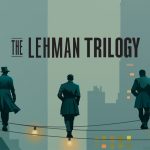“It’s the End of the World as We Know It”
In the post-apocalyptic novel, civilization has collapsed, but culture and beauty survive.
This week’s recommended reading is the chilling Station Eleven by Emily St. John Mandel.
In a world full of Ebola virus, radical weather change, and relentless terrorists, this apocalyptic novel seems all too plausible. Twenty years after The Collapse, a world-destroying influenza pandemic, roaming bands of travelers wander to and from decaying towns around the Great Lakes.
One of these gypsy bands is called The Traveling Symphony. They survive by playing music and performing Shakespeare for the beleaguered survivors. The Conductor and members like The Tuba and The First Flute give a taste of past culture to the post-technology generation. Along the way, they encounter the wreckage of a plague-decimated North America.
This territory will be familiar to readers of Cormac McCarthy’s The Road or viewers of Mad Max. However, Ms. Mandel is unique in her perspective. In her end-of-the-world scenario, culture and beauty survive, even if they must constantly guard against the encroachment of evil and madness.
The Traveling Symphony encounters a malevolent cult called The Light. Its prophet wants control over them, and the artists find themselves in a struggle for their very existence. This conflict surfaces as the group has embarked on a pilgrimage to seek the rumored Museum of Civilization in a distant town.
Much of the power of these post-apocalyptic scenes comes from Ms. Mandel’s spare and haunting descriptions of civilization’s decay. Unburied corpses litter the roadsides and rusting cars are replaced by horse-drawn wagons. There is no central government, so each town permutates into an organism of unknown danger.
The past lives and intertwined fates of these characters are revealed as more is remembered of the days before the end. The episodes of Arthur and his young wife, Miranda, in Hollywood are especially telling in their contrasts with the meager lives after The Collapse. Sophistication and conspicuous consumption takes on an obscene aspect when seen next to the squalor of survival.
Station Eleven is a masterful novel that works on many levels. We are drawn into the mystery of what makes our lives livable and then forced to confront what they would be like without our creature comforts. We leave this work of fiction changed and braced for action, should the worst befall us.
Spotlight on Local Writers: Julia Pandl
Local author Julia Pandl is a member of the famous Pandl family of restaurateurs. Her delightful autobiography about growing up in the dining business, Memoir of the Sunday Brunch, has been revised and reissued. It is well worth the read.
Memoir of the Sunday Brunch is published by Algonquin Books. Ms. Pandl’s biography and more information can be found on her website and here.
Upcoming Book Events:
Tuesday, September 23 (5:30-7:30 PM): A Banned Books Celebration at Stonefly Brewing Company, 735 E. Center St. Co-sponsored by Woodland Pattern Book Center.
Wednesday, September 24 (7:00 PM): Chris Guillebeau, author of The $100 Startup, presents his latest book, The Happiness of Pursuit, at Boswell Book Company.
Thursday, September 25 (7:00 PM): Paige Rawl, author of Positive: A Memoir at Boswell Book Company. Co-sponsored by the AIDS Resource Center of Wisconsin, this presentation is recommended for ages 13 and above.
Friday, September 26 (7:00 PM): Local writer Christine M. Merritt, author of Once Upon a Time in China: Worms, Cha, and a Harmonious Societyat Boswell Book Company.
Send your book club picks and author event information to me at info@urbanmilwaukee.com or on Facebook at https://www.facebook.com/stottsbookedup And good reading!
Booked Up
-
The Poet Who Made Milwaukee Famous
 Apr 7th, 2015 by Richard Davis
Apr 7th, 2015 by Richard Davis
-
Five Great Books I Meant To Review
 Dec 30th, 2014 by Will Stotts, Jr.
Dec 30th, 2014 by Will Stotts, Jr.
-
An Incredible Debut Novel
 Dec 16th, 2014 by Will Stotts, Jr.
Dec 16th, 2014 by Will Stotts, Jr.





















